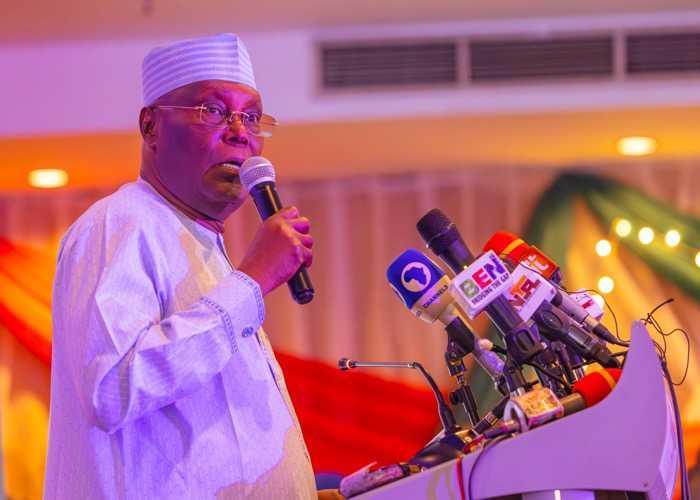Former Vice President Atiku Abubakar has accused the Nigerian National Petroleum Company Limited (NNPCL) of being hijacked by corporate cabals close to President Bola Tinubu. In a statement released Thursday by his Media Adviser, Paul Ibe, the 2023 Presidential candidate of the Peoples Democratic Party (PDP) highlighted his concerns over the management of the NNPCL, particularly its retail operations, which he claims have been placed under the control of OVH, a company partially owned by Oando, led by Wale Tinubu.
Atiku expressed regret that his vision to privatize the NNPC and enhance its transparency has been thwarted by what he describes as a “criminal hijack” by corporate interests surrounding the current administration. He referenced a controversial acquisition in October 2022, where NNPC Retail announced it had acquired OVH and its filling stations. Despite NNPC’s existing 550 filling stations, the company justified the acquisition, which included 94 owned stations and 100 leased ones, as a capacity enhancement. However, the terms of this acquisition, including the purchase price, were not disclosed, leading to a lack of transparency that Atiku condemned.
The former Vice President also criticized the retention of Mele Kyari as the Group Managing Director (GMD) of NNPCL, despite what he termed as Kyari’s incompetence. He further alleged that President Tinubu had appointed his former boss at Mobil, Pius Akinyelure, as NNPCL Chairman, while also assuming the role of Minister of Petroleum himself. Atiku described these moves as economically illogical, pointing out that OVH, previously under NNPC Retail, now holds a 49% stake in NNPC Retail through Wale Tinubu’s Oando. He argued that this situation represents a misuse of office by President Tinubu, accusing him of preventing NNPC from becoming a public liability company as required by the Petroleum Industry Act (PIA).
Atiku also voiced doubts about the credibility of the ongoing investigation into NNPCL, suggesting that vested interests would compromise its outcomes. He specifically mentioned Senator Opeyemi Bamidele, who is leading the National Assembly panel investigating the NNPCL, describing him as a known supporter of Tinubu. Atiku expressed skepticism that Bamidele, whom he characterized as a loyalist to the President, would conduct a thorough investigation.
In addition to his criticisms of the NNPCL, Atiku accused Tinubu of turning Nigeria into a private enterprise, stating that the country’s future has been “effectively mortgaged” to Tinubu, his family, and associates. He warned that these entanglements would be difficult to undo, even after Tinubu leaves office.
Atiku further claimed that President Tinubu has integrated his business interests into the fabric of Nigeria’s economy, similar to how he allegedly did with public enterprises in Lagos through companies like Alpha Beta and Primero. Atiku also commented on recent reports regarding the Lagos-Calabar Coastal Highway project, which is currently under litigation. He recalled that the Organized Crime and Corruption Reporting Project (OCCRP) had reported the close relationship between Tinubu’s son, Seyi, and Gilbert Chagoury, the contractor awarded the project without competitive bidding. Atiku argued that this represents a clear conflict of interest and further evidence of President Tinubu’s unchecked influence over government contracts.
